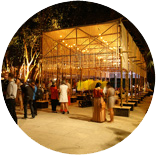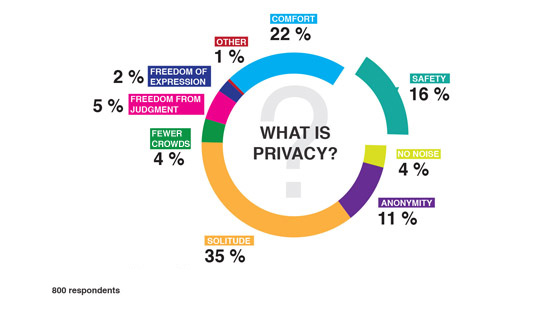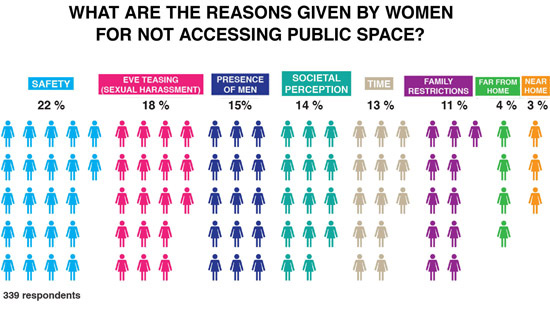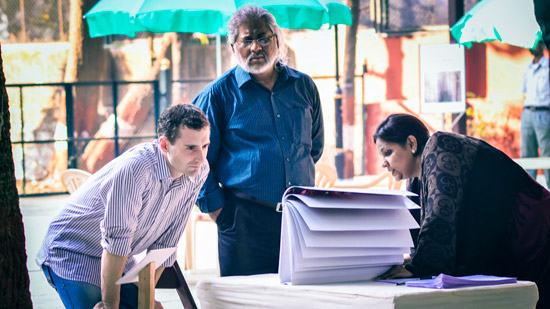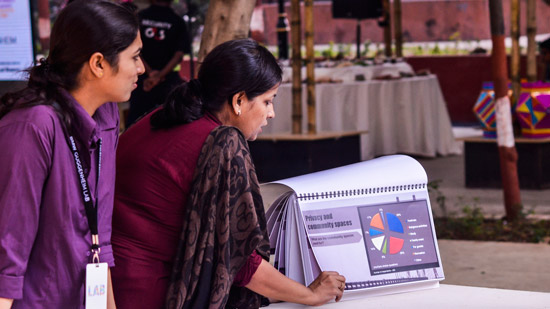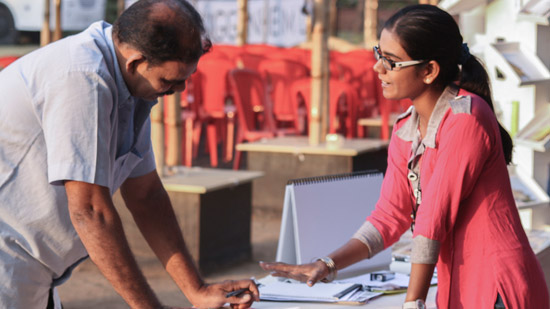Your Place, My Place, or Our Public Space?: Privacy and Spaces in Mumbai
With approximately 20 million urban dwellers living on one narrow peninsula, Mumbai is one of the world’s fastest-growing and most densely populated cities. Given the city’s vast population and limited space, both public and private, where and when do Mumbaikars find private, personal refuges? And where do they go when they need shared, accessible space in their city?
In 2012, the BMW Guggenheim Lab, in cooperation with Mumbai-based independent research collective Partners for Urban Knowledge, Action and Research (PUKAR) and Mumbai Lab Team member Aisha Dasgupta, launched a seven-month participatory city research project to explore these questions. Without attempting an empirical study of these issues, “Your Place, My Place, or Our Public Space” endeavored to shed light on how they affect the use and creation of urban space. The study incorporated 800 in-person surveys conducted with a diverse group of Mumbaikars that explored the concept of privacy and its relationship to personal and public spaces. Questions for the quantitative study were developed based on themes identified in an initial survey consisting of 39 in-depth interviews; an additional 507 surveys were administered at the Lab’s six locations during its presentation in Mumbai.
The initiative brought to light the varied and complex ways in which Mumbaikars find or create privacy in their daily lives. For instance, 54 percent of the 800 respondents considered “home” to be their most private space and a place where they find time for themselves. Yet many participants felt that their homes did not grant adequate privacy for their specific needs—not surprising, given that, in Mumbai, entire families often share a single room as their sleeping quarters. The study suggests that the root of that lack of privacy at home lies in Mumbai’s overcrowding. Soaring real estate prices contribute to this problem, as many individuals cannot afford to live independently.
As for Mumbaikars’ thoughts on what constitutes public space, the 800 participants considered open and free spaces such as seashores and parks to be public spaces, as expected. Yet they also considered spaces that require a fee for entry or use, such as cinema halls, restaurants, membership clubs, and public toilets, to be public spaces. Such places clearly are not viable options for those with financial constraints. Instead, many urban dwellers (55 percent of the 800 respondents), turn to free, local community centers. But an alarming one-fifth of the respondents said that they have no access to community space of any kind.
An equal number of men and women were concerned with safety. For 87 percent of female participants, women’s safety, sexual harassment, and the presence of men were the top three criteria that precluded women from accessing public space; men expressed concern about the same issues. In a city considered one of India’s safest, this was an unexpected response.
Above all, this project reaffirmed that, in Mumbai, access to public spaces that fit users’ requirements remains a challenge. We hope that Mumbai and other cities around the world will be better able to fulfill the needs of individuals and communities in the arenas of housing, public space, livability, and other issues by considering and responding to these thoughts from city dwellers about how they inhabit their own urban environment.
To learn more, download the full version of this article [PDF 147 KB] and PUKAR's detailed presentation about the study. [PDF 3.8 MB]
Project team: Aisha Dasgupta, Nandita Kotwal, Reshma Ludbe, Anita Patil-Deshmukh, Tejal Shitole, Sonia Srinivasan, and Anil Walmiki, with consultation from David van der Leer and Stephanie Kwai
Visuals for PUKAR presentation: Jeremy James.
This work was created by Aisha Dasgupta, a Mumbai Lab Team Member, in collaboration with PUKAR (Partners for Urban Knowledge, Action and Research) in connection with the BMW Guggenheim Lab project, a project of the Solomon R. Guggenheim Foundation, and is licensed under a Creative Commons Attribution 3.0 Unported License.
The initiative brought to light the varied and complex ways in which Mumbaikars find or create privacy in their daily lives. For instance, 54 percent of the 800 respondents considered “home” to be their most private space and a place where they find time for themselves. Yet many participants felt that their homes did not grant adequate privacy for their specific needs—not surprising, given that, in Mumbai, entire families often share a single room as their sleeping quarters. The study suggests that the root of that lack of privacy at home lies in Mumbai’s overcrowding. Soaring real estate prices contribute to this problem, as many individuals cannot afford to live independently.
As for Mumbaikars’ thoughts on what constitutes public space, the 800 participants considered open and free spaces such as seashores and parks to be public spaces, as expected. Yet they also considered spaces that require a fee for entry or use, such as cinema halls, restaurants, membership clubs, and public toilets, to be public spaces. Such places clearly are not viable options for those with financial constraints. Instead, many urban dwellers (55 percent of the 800 respondents), turn to free, local community centers. But an alarming one-fifth of the respondents said that they have no access to community space of any kind.
An equal number of men and women were concerned with safety. For 87 percent of female participants, women’s safety, sexual harassment, and the presence of men were the top three criteria that precluded women from accessing public space; men expressed concern about the same issues. In a city considered one of India’s safest, this was an unexpected response.
Above all, this project reaffirmed that, in Mumbai, access to public spaces that fit users’ requirements remains a challenge. We hope that Mumbai and other cities around the world will be better able to fulfill the needs of individuals and communities in the arenas of housing, public space, livability, and other issues by considering and responding to these thoughts from city dwellers about how they inhabit their own urban environment.
To learn more, download the full version of this article [PDF 147 KB] and PUKAR's detailed presentation about the study. [PDF 3.8 MB]
Project team: Aisha Dasgupta, Nandita Kotwal, Reshma Ludbe, Anita Patil-Deshmukh, Tejal Shitole, Sonia Srinivasan, and Anil Walmiki, with consultation from David van der Leer and Stephanie Kwai
Visuals for PUKAR presentation: Jeremy James.
This work was created by Aisha Dasgupta, a Mumbai Lab Team Member, in collaboration with PUKAR (Partners for Urban Knowledge, Action and Research) in connection with the BMW Guggenheim Lab project, a project of the Solomon R. Guggenheim Foundation, and is licensed under a Creative Commons Attribution 3.0 Unported License.
View Comments ()

